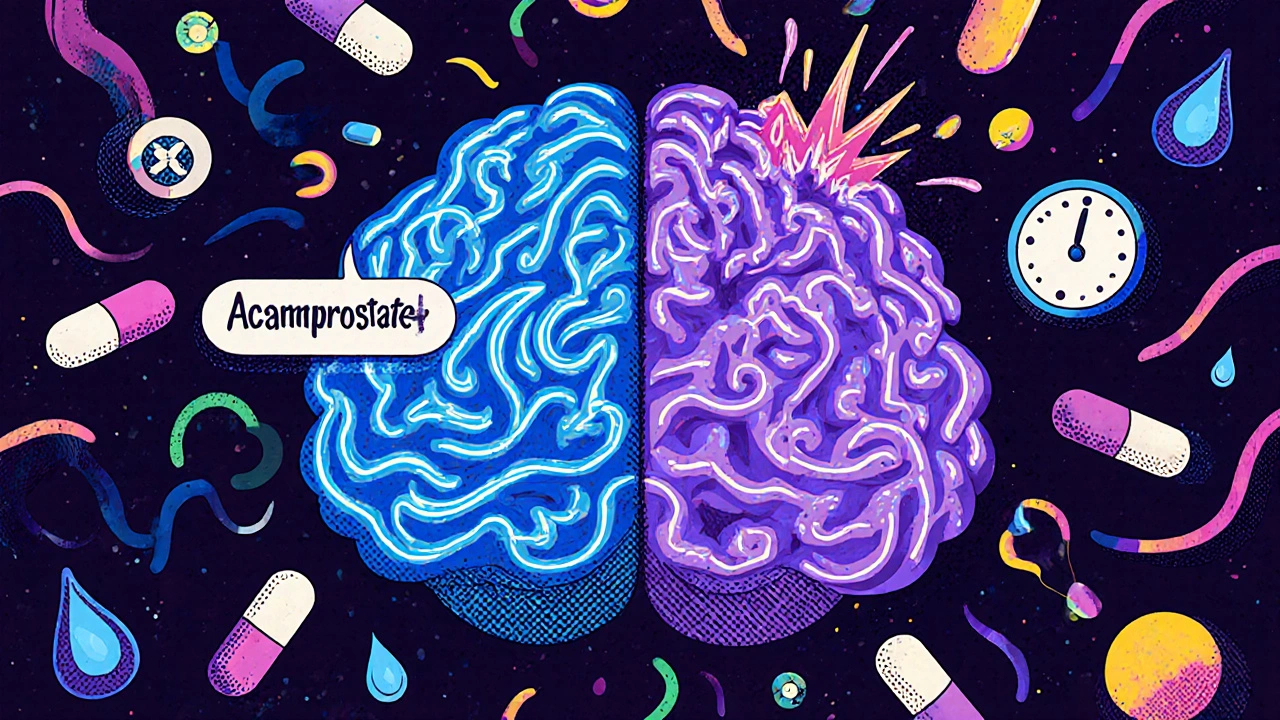Alcohol Recovery: Medications, Support, and What Actually Works
When someone begins alcohol recovery, the process of stopping regular alcohol use and rebuilding a healthier life. Also known as alcohol abstinence, it’s not just about willpower—it’s about rewiring the brain, managing triggers, and often, using medication to reduce cravings and prevent relapse. Many people think recovery means going cold turkey and hoping for the best. But science shows that’s not enough for most. The brain changes after long-term drinking, and those changes don’t vanish overnight. That’s where naltrexone, a medication that blocks the pleasurable effects of alcohol comes in. It doesn’t cure addiction, but it makes drinking less rewarding, which helps people stay on track.
Then there’s acamprosate, a drug that helps stabilize brain chemistry after stopping alcohol. It doesn’t stop cravings right away, but it reduces the long-term discomfort—like anxiety, restlessness, and insomnia—that often leads people back to drinking. And for some, disulfiram, a medication that causes unpleasant reactions if alcohol is consumed works as a strong deterrent. It’s not for everyone—some find the side effects too harsh—but for those who need a hard line, it can be life-changing. These aren’t magic pills. They work best when paired with counseling, support groups, or lifestyle changes. And they only help if taken consistently. Too many people stop because they feel fine, not realizing that the risk of relapse stays high for months, even years.
Alcohol recovery also means dealing with the physical fallout. Heavy drinking can cause edema, fluid retention that leads to swollen legs and ankles, liver stress, and nutrient loss. Recovery isn’t just about stopping drinking—it’s about healing the body. That’s why people in recovery often need help with sleep, mood, and even skin health. The good news? Many of the same strategies that help with anxiety or insomnia also support long-term sobriety. You don’t need to be perfect. You just need to keep moving forward.
What you’ll find below isn’t a list of success stories. It’s a collection of real, practical guides—on how medications work, why they fail for some, what side effects to watch for, and how to recognize when it’s time to switch approaches. These aren’t theoretical. They’re written for people who’ve been through it, and they answer the questions no one talks about out loud: What if I still crave a drink? What if I relapse? What’s the next step after the first month? The path to recovery isn’t linear. But you don’t have to walk it alone.
Compare Acamprol (Acamprosate) with Alternatives for Alcohol Dependence
Compare Acamprol (acamprosate) with naltrexone, disulfiram, topiramate, and other alternatives for alcohol dependence. Learn which medication suits your needs, side effects, costs in Australia, and how to choose the right treatment.
